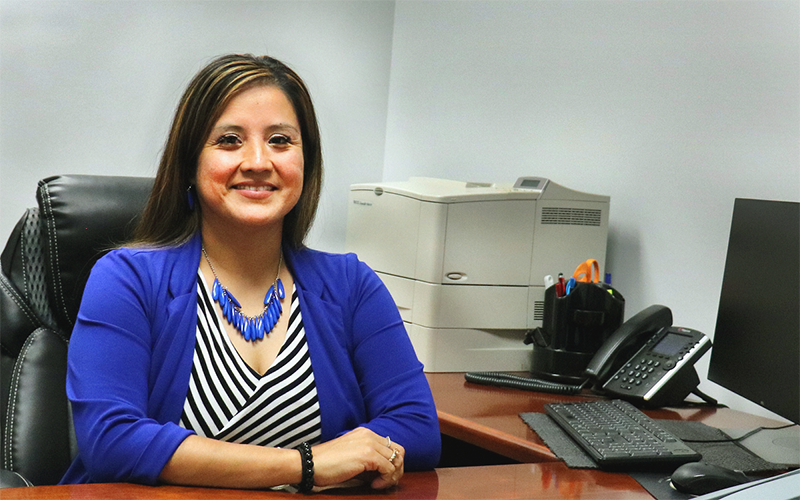Second Chances Centers Present Opportunities for a New Life

When Governor Doug Ducey set out to reduce recidivism in Arizona, he tasked the Arizona Department of Economic Security (DES) and Arizona Department of Corrections (DOC) to collaborate and bring comprehensive support services to inmates nearing release who were most likely to recidivate. In March 2017, the state’s first Second Chance Centers (SCC) opened to provide inmates with a 10-week program designed to prepare them for reentry in our communities and workforce. Since the program’s inception, more than 1,000 inmates benefitted from ARIZONA@WORK employment readiness services, resulting in 835 job placements, and almost all have connected to state and community resources for housing and transportation assistance, healthcare, and more. One benefit that can’t be measured, however (which some would argue is even greater than the aforementioned outcomes), is the power of hope and shift in mindset that SCC participants take away from the program.
A few years ago, mother of two, Cheryl Jimson found herself facing a three-year sentence after being charged with her second aggravated DUI. She felt angry and bitter, blaming her environment and history for her undesirable circumstance. Jimson, who comes from a family of heavy drinkers, also experienced abuse and trauma. Like many survivors, she coped with her pain through substance abuse and denial. On the outside, she exposed a tough exterior—a façade she used to convince herself and others that she was okay and deserving of a social reprieve from her hard work by over-drinking. “’Work hard, play hard’ is what I told myself,” said Jimson.
“I never viewed myself as having a problem,” she explained, “but prison gives you a lot of time to think, and once I took a good, hard look at myself, I realized that I had a lot of unresolved forgiveness in my heart that I think led to the addiction and my bad attitude.”
After a lot of painful and honest reflection, Jimson said she chose to forgive herself and turn her suffering into something constructive. She connected to her spirituality, the wise words of her beloved grandmother, and the opportunities she was offered through the prison’s SCC to shift her negative mindset into a positive one.
“Our Employment Counselors strive to provide a vision of hope to the inmates they work with by combining directed, DES mission-focused leadership with empathy, and detailed instruction,” explained DES Reentry Coordinator Matt Knitter. Knitter says that SCC staff aim to help inmates connect to their own strength, confidence and purpose.
Jimson is one of the many SCC participants who took full advantage of the opportunities she was extended through the program and came out with much more than just a great job. “I’m a different person now,” said Jimson. “To this day, I don’t view my sentence as a punishment. I see it as a blessing.”
While Jimson says she did struggle with the time her stint in prison took her away from her children, she believes it’s exactly what she needed to open her eyes to the self-destructive lifestyle in which she was entangled. “I’m not sure how I was chosen to participate, but I believe everything happened exactly how it was supposed to,” she said.
Each day during the last 10 weeks of her sentence, Jimson worked with DES and DOC staff to prepare for a successful reentry through workforce readiness skills and soft skills to manage emotions and maintain a positive mindset. She also learned from guest speakers who themselves have achieved successful reentry. Jimson accepted gainful employment and SCC staff provided her with professional clothing, gas and bus passes, and resources to assist with housing and furniture, to help her acclimate to her new life upon release.
“Thanks to the SCC program I left prison with so many resources that there is no way I could fail,” said Jimson. “The speakers and SCC staff genuinely cared and helped me realize that what I went through in my past doesn’t define me.”
To learn more about ARIZONA@WORK reentry services, please visit www.ARIZONAatWORK.com.
By Jillian Seamans

